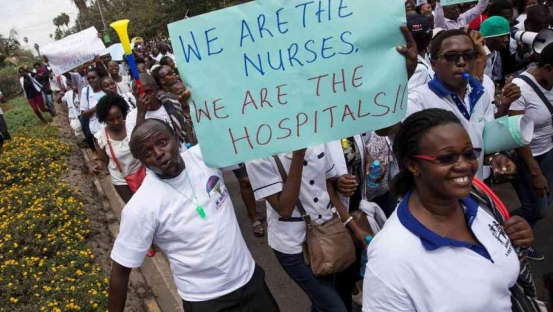×
The Standard e-Paper
Stay Informed, Even Offline

That the health crisis resulting from a national strike by nurses has dragged on for several months is yet another clear and depressing indication of indifference among the country’s political and bureaucratic class to the welfare of ordinary Kenyans.
Since June 5, millions of Kenyans have been unable to access basic and crucial health services in public facilities across the country due to a dispute between nurses and various government agencies over the signing of a collective bargaining agreement.